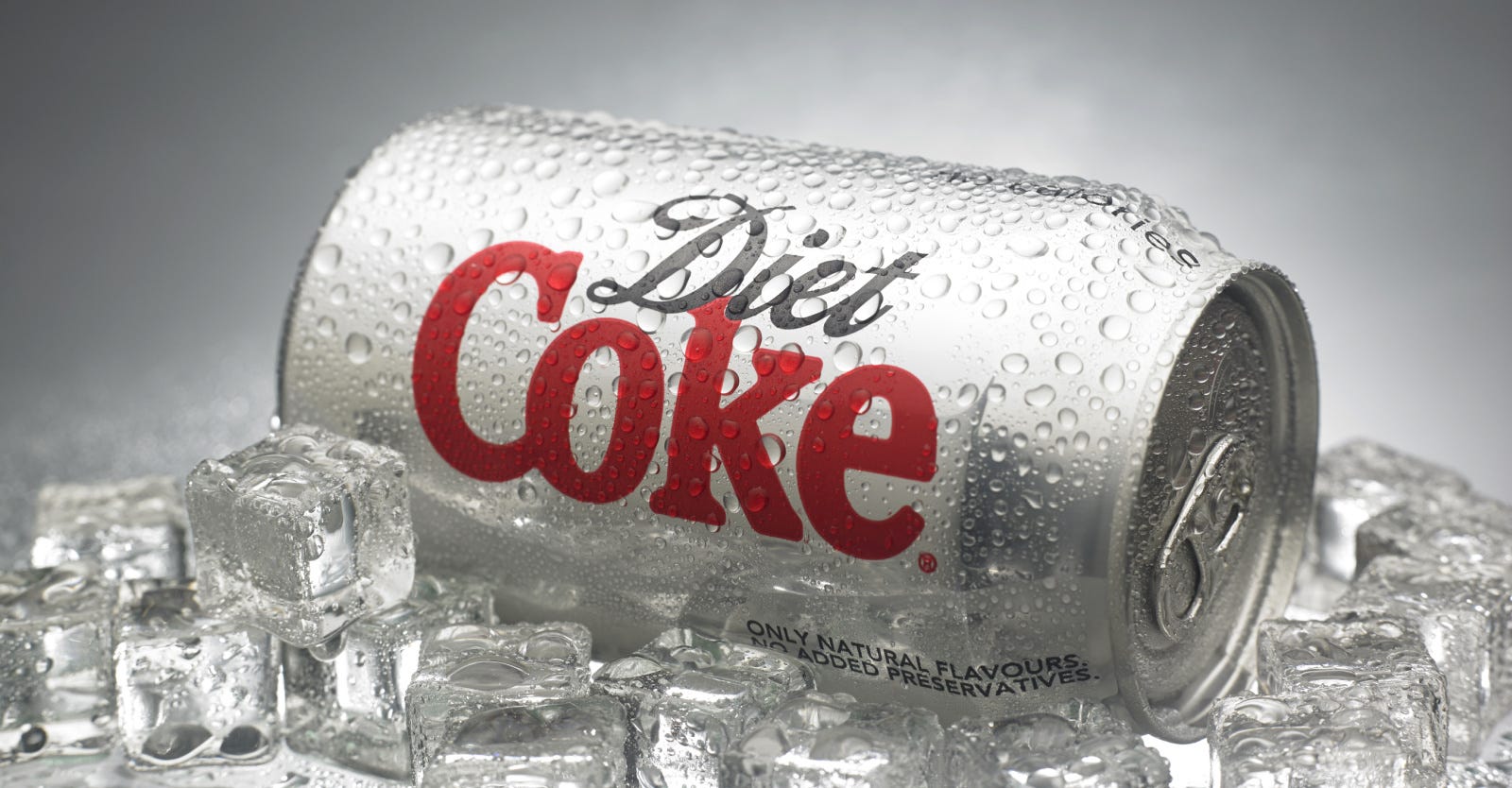|
Aspartame in Thousands of Products to Finally be Labeled a Possible Human Carcinogen
For years the FDA has ignored science showing aspartame in more than 6,000 products, including Diet Coke, is carcinogenic to humans—catering to the multi-billion-dollar artificial sweetener industry.
Scientists have known for decades that aspartame, the world’s most widely used and controversial artificial sweetener, was potentially carcinogenic to humans. In fact, most natural health practitioners, like myself, prioritized getting our clients off Diet Coke—a toxic and corrosive substance that will make you gain weight faster than a hot air balloon—as quickly as possible.
As is often the case with “real” science, it takes a long time to be accepted because big corporations, potential lawsuits over injuries, misleading marketing, egos, and billion-dollar industries are involved. This is no different with aspartame.
Yet, the World Health Organization’s (WHO) cancer research arm—the International Agency for Research (IARC)—is set this month to classify aspartame as “possibly carcinogenic to humans.”
The IARC is a panel of outside experts who examine the cancer-causing potential of substances. Advice on how much of the product a person can safely consume is handled by a separate WHO expert panel on food additives—the Joint FAO/WHO Expert Committee on Food Additives (JECFA)—along with national regulators.
I know what you’re thinking . . . you want nothing to do with anything WHO, but here’s why this is important: Remember when lawsuits were finally filed and successfully won over cancer-causing glyphosate?
The floodgates opened after the IARC in 2015 said the Roundup Ready herbicide was “probably carcinogenic to humans.”
The IARC based its decision at the time on “‘limited’ evidence of cancer in humans (from real-world exposures that actually occurred) and ‘sufficient’ evidence of cancer in experimental animals (from studies of “pure” glyphosate). The IARC also found “strong” evidence for genotoxicity for “pure” glyphosate and glyphosate formulations.
Until the IARC stepped in, people were dying and Monsanto was marketing their carcinogenic herbicide as the best thing ever. Guess what else Monsanto misleadingly marketed that killed people and caused polio-like symptoms? DDT.
Ironically, Monsanto—now Bayer—in 1985 purchased G.D. Searle, the chemical company that developed and held the patent for aspartame. The company’s aspartame brand “NutraSweet” is still alive and well in over 4,000 products. Bayer is probably starting to sweat.
Do you know who else isn’t happy with the new designation? Big corporations like Coca-Cola, Mars Wrigley, and Cargill, which belong to the multi-billion-dollar artificial sweetener industry entirely centered around making products people consume that could cause cancer.
We can’t just look at Bayer (Monsanto), though. It would only be fitting to turn our attention to the U.S. Food and Drug Administration (FDA)—tasked with keeping products like these off the market in the first place.
What exactly is aspartame?
You may have heard that aspartame is safe and “natural” because it’s derived from two amino acids we commonly consume, but this would be only a partial truth. According to the FDA, aspartame, or L-aspartyl-L-phenylalanine methyl ester, is a white, odorless powder derived from two amino acids: phenylalanine and aspartic acid.
During digestion, approximately 50% of aspartame by weight breaks down into phenylalanine, aspartic acid, and potentially toxic methanol in the small intestine, where it converts to formaldehyde.
Methanol is a type of nondrinking alcohol commonly used in fuel, solvents, and antifreeze. Sounds tasty, right?...
Subscribe to Megan Redshaw to read the rest.
Become a paying subscriber of Megan Redshaw to get access to this post and other subscriber-only content.
A subscription gets you:
| Subscriber-only posts and full archive | |
| Post comments and join the community | |
| Exclusive paid subscribers chat thread with Megan |
